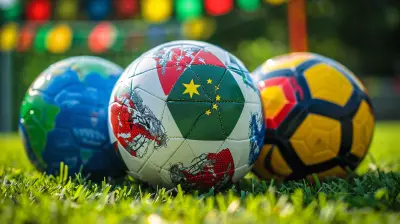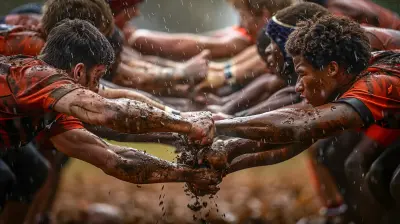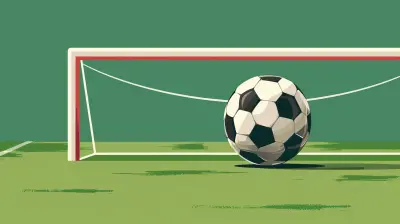Essential Gear for Every Beginner Cyclist
7 September 2025
So, you’ve decided to hop on a bike and embrace life on two wheels — welcome to the club! Whether you're aiming to cruise around your neighborhood, commute to work, or eventually conquer long-distance rides, cycling is an amazing way to stay fit, clear your mind, and explore the world. But before you roll out, let’s talk about the gear. And no — you don’t need to drain your bank account right away.
Think of your cycling gear as your personal pit crew. The right equipment can keep you safer, make your rides more enjoyable, and even help you ride faster and longer. In this post, we’re breaking down all the essential gear for every beginner cyclist. No fluff, just the stuff you actually need.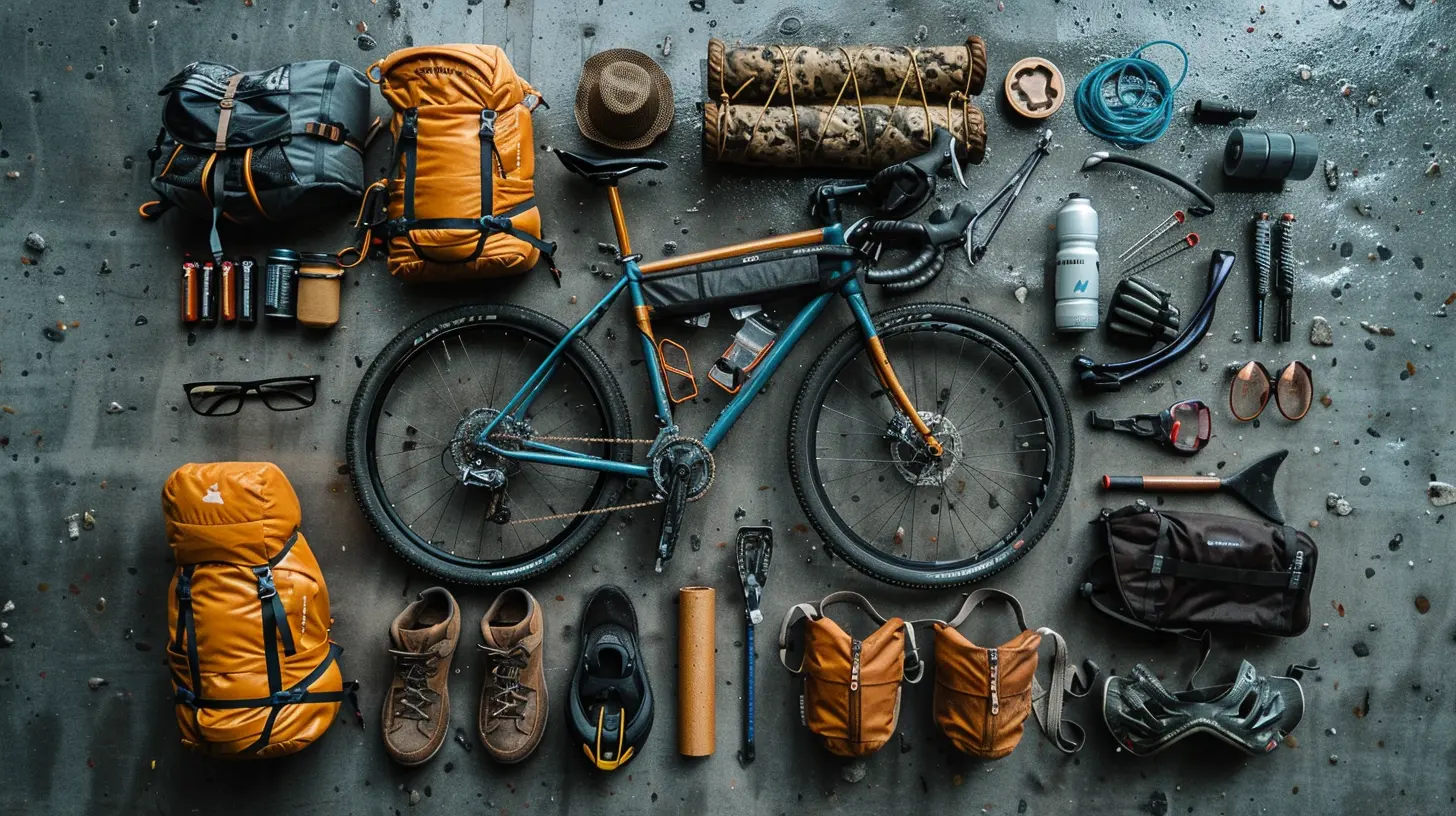
1. A Bike That Fits (Seriously, Don’t Skip This)
Alright, let’s start with the obvious: You need a bike. But not just any bike — the right bike. One that fits you properly. It’s kind of like wearing shoes. You wouldn’t run a marathon in shoes two sizes too big, right?Types of Bikes to Consider:
- Road Bikes: Lightweight and built for speed on pavement. Great for long-distance or city rides.- Mountain Bikes: Perfect for off-road trails and rugged terrain.
- Hybrid Bikes: A mix of both worlds. Ideal for beginners who want comfort and flexibility.
- Commuter Bikes: Built for daily riding with racks and fenders — super practical.
👉 Pro Tip: Visit a local bike shop to get professionally fitted. A proper fit prevents injuries and makes riding way more comfortable.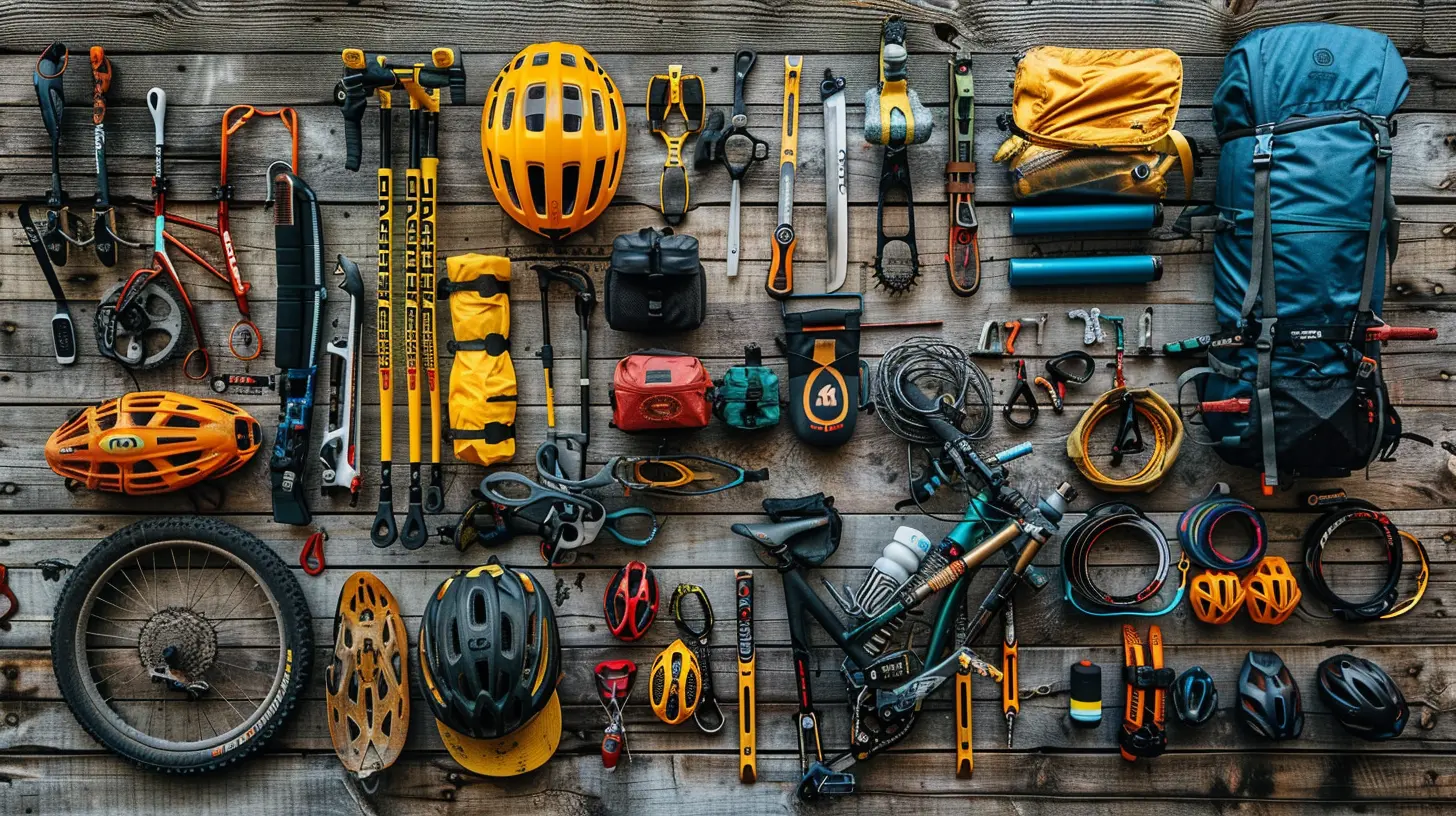
2. Helmet — Don’t Ride Without One
This one’s a no-brainer (pun intended). A helmet is non-negotiable. You never know when a car door will swing open, a pothole will sneak up on you, or a squirrel will decide to play chicken (yes, it's a thing).What to Look For:
- Snug Fit: It shouldn’t wobble around your head.- MIPS Technology: Offers better protection from rotational impacts.
- Ventilation: Keeps your head cool.
- CPSC Certification: Ensures it meets safety standards.
You don’t need a helmet that looks like it’s from NASA — just one that fits and protects.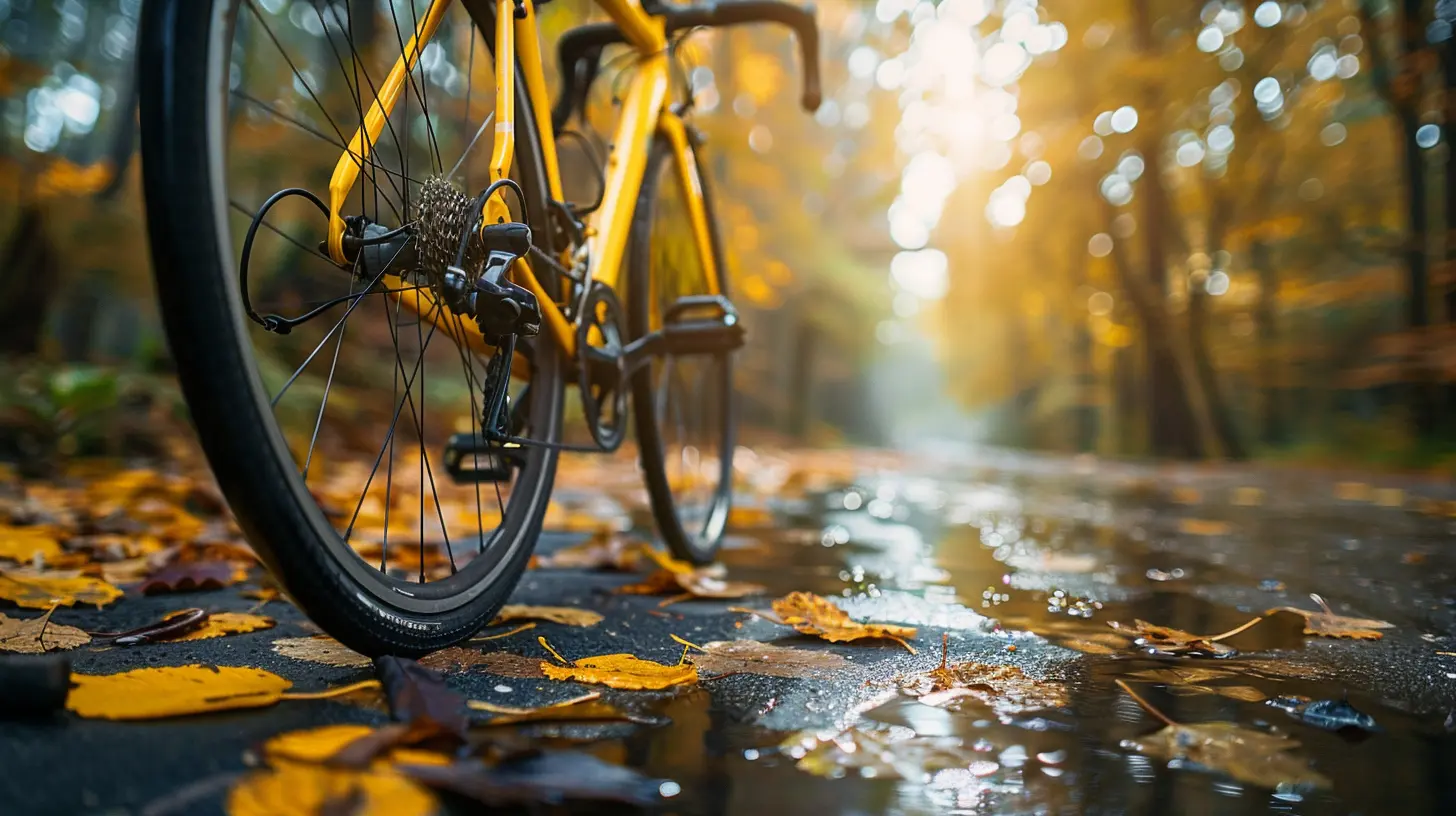
3. Padded Cycling Shorts — Your Butt Will Thank You
If your plan includes rides longer than 15–20 minutes, don’t underestimate the power of padded cycling shorts. Trust me, after your first long ride, your rear end is going to feel it. These shorts have built-in padding (called a chamois) that adds a cushion between you and your saddle.Benefits:
- Reduces friction and chafing.- Prevents saddle soreness.
- Improves comfort over long distances.
You can get bike shorts in all styles — traditional spandex, baggies, or even padded liners you wear under regular clothes.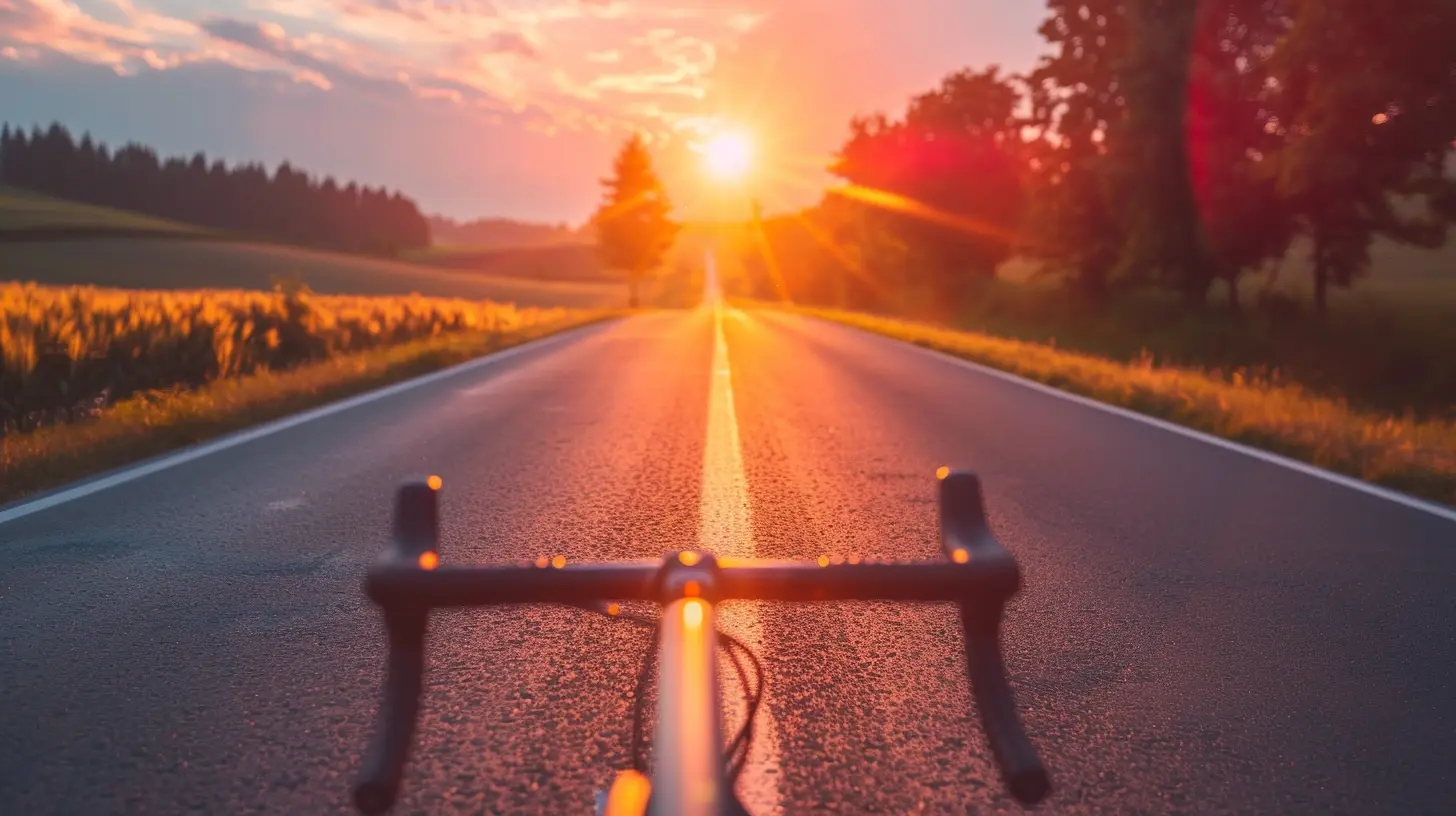
4. Cycling Gloves — Little Things, Big Difference
Ever notice how your hands fall asleep or get sore during a ride? That’s where gloves come in. They reduce pressure on your palms, improve grip, and protect your hands if you fall.Glove Varieties:
- Fingerless: Great for warm weather.- Full-finger: Better for cooler temps or rough terrain.
Plus, some come with touchscreen compatibility, so you can still snap that perfect ride photo without freezing your fingers off.
5. Bike Lights — Be Seen, Be Safe
Even if you don't plan on riding at night, bike lights are essential for visibility — especially at dawn, dusk, or in cloudy conditions. Cars aren’t always on the lookout for cyclists, so make yourself as visible as possible.Must-Haves:
- Front White Light: Helps you see and be seen.- Rear Red Light: Lets drivers spot you from behind.
- Rechargeable USB Options: Save money (and the planet) over time.
Some lights even have flash modes, which help you stand out during daylight hours.
6. Water Bottle & Cage — Hydration = Performance
You’re going to sweat — a lot! Proper hydration keeps your muscles working and your energy up, especially in the heat or on longer rides.Your Setup:
- Water Bottle: BPA-free and easy to squeeze.- Bottle Cage: Attaches to your bike frame for on-the-go sipping.
If you’re planning longer rides, think about getting a hydration backpack. It's like your secret weapon for staying fueled.
7. Basic Repair Kit — Because Flats Happen
Nothing ruins a ride faster than a flat tire — especially if you’re miles from home. A basic repair kit will get you back on the road in no time.Essential Tools to Carry:
- Spare Tube (right size for your wheel)- Tire Levers
- Mini Pump or CO₂ Inflator
- Multi-Tool (with Allen keys, screwdrivers, and chain tools)
👉 Bonus Tip: Learn how to fix a flat before you need to. YouTube is your friend here.
8. Bike Lock — Protect Your Ride
If you’re parking your bike anywhere that isn’t inside your house, lock it up. Bikes are unfortunately a popular target for theft.Best Options:
- U-Locks: More secure and durable.- Cable Locks: Lightweight, but better as a secondary lock.
- Folding Locks: Compact and strong.
Pro cyclists say, “Spend as much on your lock as you’re willing to lose on your bike.” Harsh, but true.
9. Cycling Jersey — Not Just for Looking Fast
Those sleek, colorful shirts aren’t just for style — cycling jerseys are actually super functional. They’re made of moisture-wicking material and have pockets on the back for storing snacks, tools, or your phone.Why You’ll Love It:
- Keeps you cool and dry.- Rear pockets = hands-free storage.
- Snug fit won’t flap in the wind.
You don’t need to go full Tour de France on day one, but having one or two jerseys will definitely level up your experience.
10. Sunglasses — Not Just a Fashion Statement
You might think sunglasses are optional — until a bug slams you in the eye at 15 mph. 😬Benefits of Cycling Sunglasses:
- Protect against UV rays.- Shield your eyes from wind, rain, and debris.
- Improve visibility through polarized or photochromic lenses.
Look for wrap-around styles that stay on your face and provide full coverage.
11. Bike Computer or App — Know Your Ride
You don’t need a fancy GPS bike computer to get started — even apps like Strava, Komoot, or Ride with GPS can do the trick. Tracking your rides is not only exciting but also motivating. You’ll see how far you’ve come — literally.What It Can Track:
- Distance- Speed
- Calories burned
- Route planning
As you advance, you might want to invest in a bike computer with more advanced stats (like cadence or heart rate), but it’s not a must from day one.
12. High-Visibility Clothing — Stand Out
Dress like you want to be noticed — because you do. Bright colors and reflective clothing ensure that drivers can see you from afar, even in bad weather.Gear to Consider:
- Reflective vests or bands- Neon jerseys
- Jackets with reflective strips
Especially if you're commuting or riding at dawn/dusk, being seen is half the battle.
13. Cycling Shoes & Pedals — Take It to the Next Level
Okay, this is more of a next step, but if you’re feeling confident, clip-in pedals and cycling shoes can make a big difference in pedaling efficiency.The Benefits:
- More power: You pull up and push down.- Better foot placement
- Less fatigue over long rides
Start with mountain bike-style shoes and pedals — they’re easier to walk in and more forgiving for beginners.
14. Chain Oil & Cleaning Supplies — Keep It Rolling Smoothly
You’d be surprised how quickly your chain and gears can get gunked up. Regular maintenance keeps your bike quiet, smooth, and extends its lifespan.Must-Have Supplies:
- Chain lube (dry or wet depending on weather)- Chain cleaning tool or old toothbrush
- Degreaser
- Clean rag
A clean drivetrain is a happy drivetrain.
Final Thoughts
Getting into cycling doesn’t mean dropping hundreds (or thousands) of dollars right out of the gate. Start with the basics and build as you go. Focus on safety, comfort, and keeping your bike in good shape. The rest? You’ll figure it out along the way.Remember, the best gear is the one that gets you out the door and on your bike. So gear up, clip in (or don't yet), and enjoy the ride!
all images in this post were generated using AI tools
Category:
Sports EquipmentAuthor:

Preston Wilkins
Discussion
rate this article
1 comments
Silas Newman
Great overview of essential gear for newcomers! I appreciate the emphasis on safety and comfort. Investing in quality items early on can truly enhance the cycling experience. Ready to hit the road!
September 13, 2025 at 11:39 AM

Preston Wilkins
Thank you! I'm glad you found it helpful. Enjoy your rides and stay safe out there!
